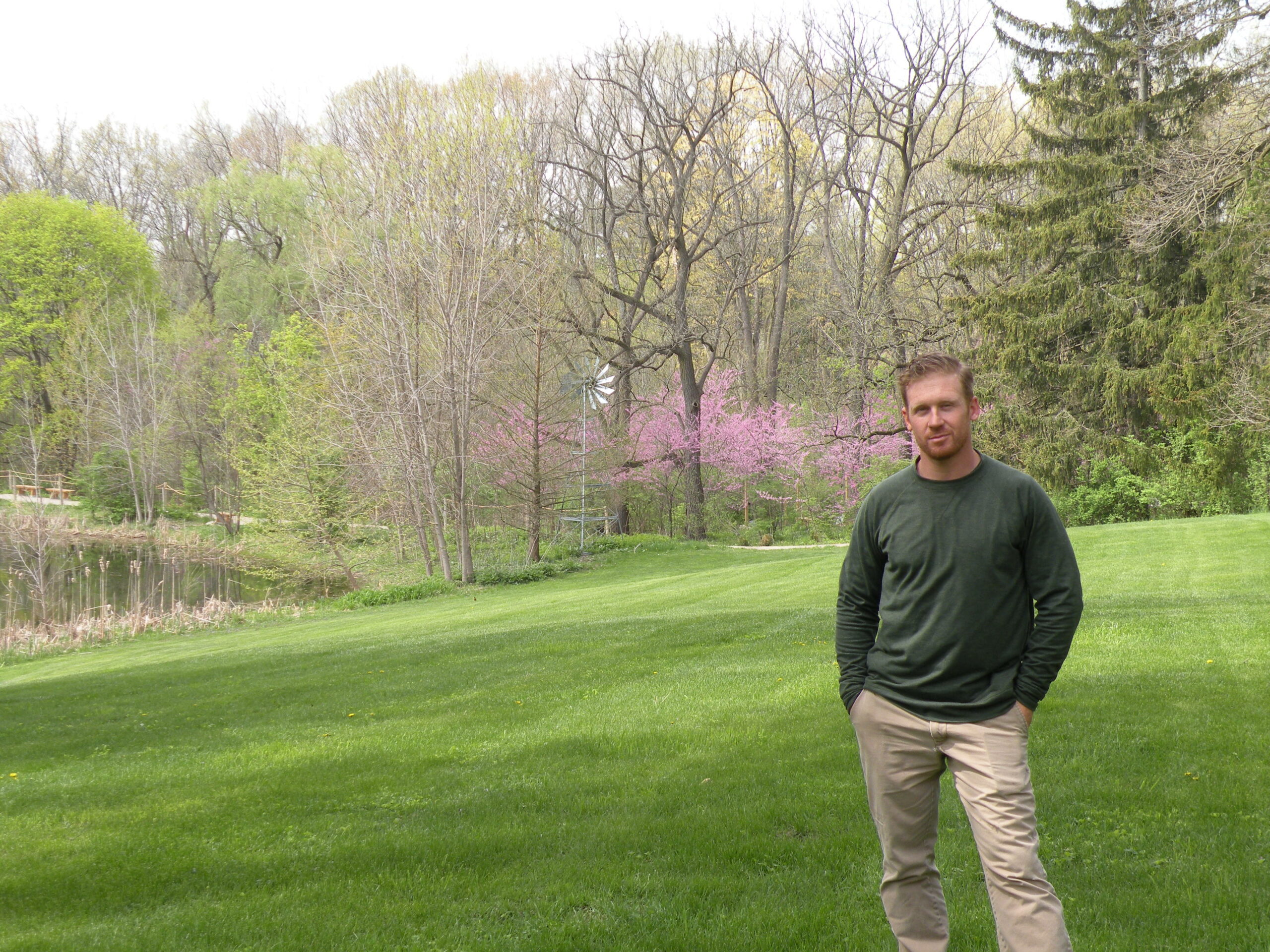
by Terrence O’Neil, Head of Grounds, Marywood Campus
We are embarking on a new journey this year to attempt to eliminate the use of any and all synthetic chemical herbicides, pesticides, and fungicides on our lawns and gardens. Healthy lawns and healthy plants are a result of having healthy soil. Over the next few years we will amend the soil by adding more organic matter that will help favor the grass to out-compete the weeds.
Last fall, I met John Venman who owns a 100% organic fertilizer and landscaping company in Rockford, Michigan called Soil Alive. John suggested a whole range of ideas on how we could use organic products to help enhance our beautiful campus instead of using synthetic chemicals. This is a very big step that will enable us to become better stewards of our environment. We are using a couple of new organic fertilizers this year. One of them uses composted poultry manure as the main source of nitrogen, and another one uses corn gluten as the nitrogen source. We will also begin experimenting with compost teas and other organic soil amendments such as fish hydrolysate (fish remains), seaweed extract, and a few other natural beneficial bacteria species that will help the grass and flowers out-compete the weeds.
In addition to these new products there are some common household items that can be used as well. We are spreading coffee grounds around acid-loving plants like Rhododendrons and Holly. Coffee grounds are acidic and contain nitrogen; as the grounds decompose, both acid and nitrogen enrich the soil. Some other natural examples include using capsaicin (chili powder) to deter pests on plants; garlic concentrate can also be used in our retention ponds to help keep mosquitos under control. Last year, we even used a treatment of predacious moths released near our large Norway Spruce trees on Lakeside Dr. to help fight off and destroy mites that were causing a decline in quality of these large trees.
One last idea I would like to share is my recent discovery of a natural recipe alternative to Round Up. Grass and weeds love to grow in sidewalk cracks, parking lots, and just about anywhere they can root. For decades people have relied on a “non-selective” chemical herbicide called Glyphosate to spray on these areas. Glyphosate is the chemical name of Round Up, and is also sold under lots of other brand names. Round Up has been in the news lately as more and more “big box” stores and home gardening centers are no longer selling it due to potential links to cancer in humans, as well as being detrimental to the bee population. If you are caring for your own garden and yard, I encourage you to look for a safer weed killer or try the natural recipe that we are using at Marywood.
So, in closing, you may notice more dandelion this year, as well as clover, crabgrass, goose grass, chickweed, and a whole variety of other weeds. But over the course of the next few years we hope to use healthy organic soil to our advantage to help manage the population of these weeds at an acceptable threshold level. This style of land management has been proven effective in many towns, parks, and public lands across the country and we are pleased to join the effort to protect our Earth, and all of our natural resources. We hope to inspire others in West Michigan around the country to do the same.
Dominican Sisters ~ Grand Rapids Direction Statement: Relationship with the Earth: We commit ourselves to foster the contemplative stance that all the earth is sacred and interconnected; respect and accountability for the earth are necessary to the survival of life. We affirm that actions which impact the environment will be preceded by the question: Is this action which I (we) are performing supportive of the environment?

